This is the last article you can read this month
You can read more article this month
You can read more articles this month
Sorry your limit is up for this month
Reset on:
Please help support the Morning Star by subscribing here
AS the Docklands Light Railway wound towards Custom House, the number of police waiting at stations en route became disconcerting.
Looking down from the train to the streets below, rows of police vans could be seen parked up next to protest camps.
More than 100 activists had already been arrested in the days leading up to Britain’s largest arms fair, the Defence and Security Equipment International (DSEI), and I felt it was increasingly unlikely the organisers would let me in.
Three weeks earlier I had applied for a press pass, but the event management firm Clarion had never confirmed if it was granted.
As the event drew nearer, news broke that two of the best investigative journalists, Ian Cobain from Middle East Eye and Solomon Hughes from Private Eye, had been denied press passes. What chance did the Morning Star stand?
When the arms fair opened on Tuesday, and their press office still did not answer my calls or return my emails, I decided to go there in person to see if I would get in.
After arriving at the giant ExCel centre I passed through layers of G4S security guards before entering a hall with about a dozen multicoloured stripes on the floor.
Journalists were instructed to follow the yellow line, which was furtherest to the right and took me to secluded booth in the corner.
“We’ve been expecting you,” the receptionist said ominously when I gave my name. “We’ve arranged for a personal shopper to show you around.”
This was not the welcome I was expecting. It turned out my “personal shopper” would either be the event director or its chief spokesman.
As she handed me my press pass, I tried not to look too surprised when I saw the red lanyard was emblazoned with a Turkish flag (it turned out that Turkey had paid to advertise on the delegate badges).
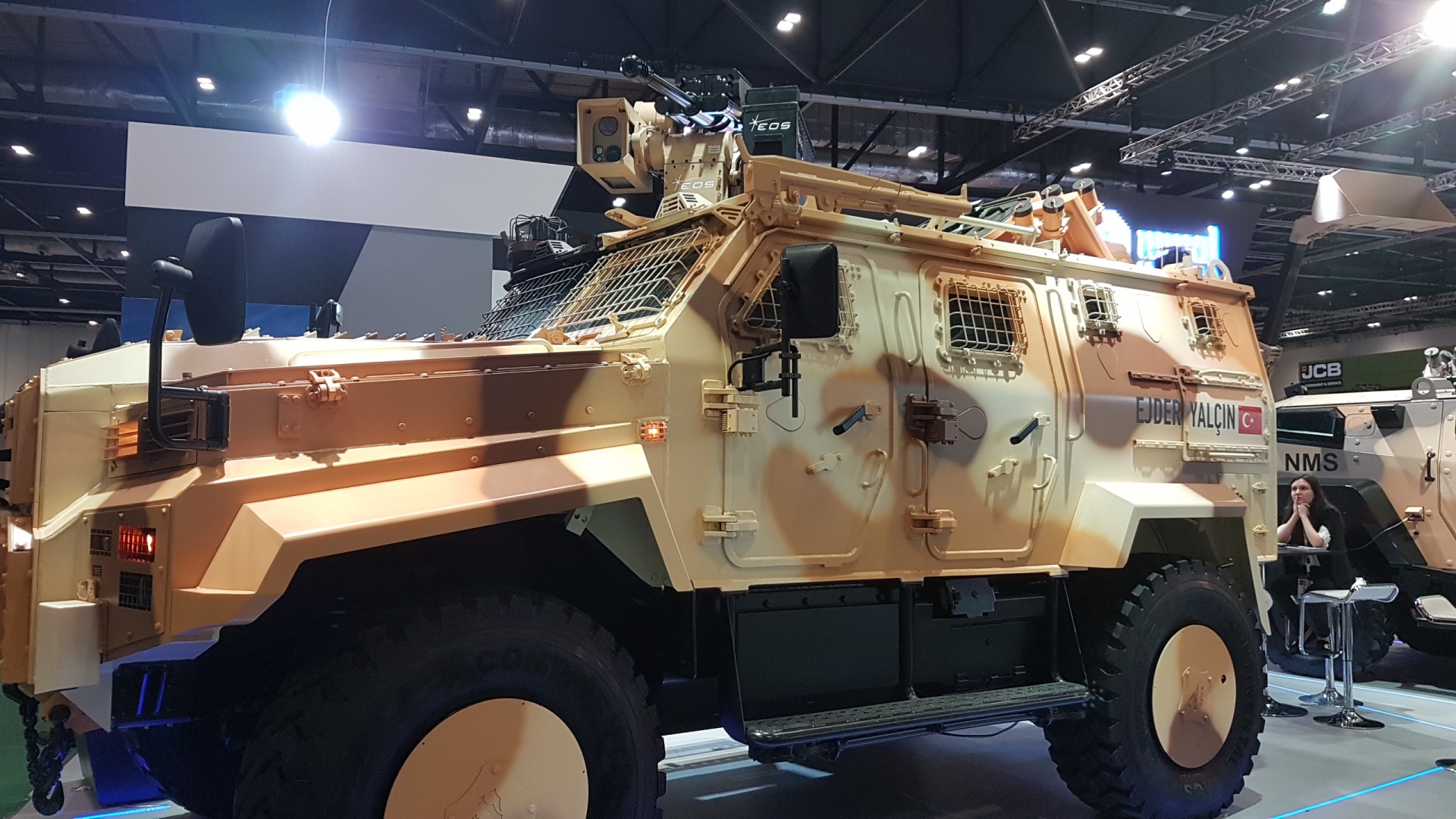
And while we waited for my host to arrive, the receptionist began to tell me her own story about working in the defence industry.
Years ago she was employed by an arms company in Kuwait, flanked by Saudi Arabia and Iraq (who had both been armed by Britain, although she did not mention that).
The experience of living in a small country surrounded by larger, better armed neighbours “changed my perspective” and she was glad when the Kuwaitis received more armoured vehicles.
Still, she lived on edge, and if Kuwait had been invaded while she was there, she planned to flee on a jet ski with her cat.
After this unexpected anecdote, a smart young chap called Charlie from Clarion’s PR firm, Luther Pendragon, arrived to whisk me through more security checks, and took me to the media centre, where I ended up in the hands of Roddy Porter, a towering retired British army general who was now DSEI’s top spokesman.
I kicked off with a couple of soft ball questions about the importance of this event for British jobs, to make sure I was not chucked out straight away, and let Roddy warm to me momentarily.
“It’s very important, there are a quarter of a million jobs in defence related industries — that’s a significant workforce, diversified across a whole range of products,” he said.
“What this show does is showcase what they do. It has a direct effect on the order book of British companies. It certainly enables them to meet new potential clients.” Roddy also began to give a line that would crop up again and again.
“There’s a spin-off from the direct military industry … military products that can now assist with disaster relief, parachuting in food and clothing to communities that are cut off and starving.”
The idea that equipment used for war could also help civilians was one that DSEI was keen to push.
When I asked Roddy how DSEI was seen internationally, he was keen to stress its global importance.
“It’s known as the premier defence and security exhibition in the world and rightly so. This has grown. When it started here in Docklands in 2008 just one side of the hall was used.”
Now the entire ExCel centre seemed taken up with tanks, fighter jets and machine guns.
“Overseas companies like coming here because of the international market opportunities and everyone wants to sell into the UK and the European defence arena,” he added.
Next I began to quiz him on why several journalists had been denied entry.
“As far as those individuals are concerned, the honest answer is I don’t know. Everyone applies online and for some reason those guys have not been accredited,” he claimed.
“I’ve seen one of their posts that says this doesn’t speak volumes for freedom of the press, but there are 500-plus journalists here,” he insisted. “There is a genuine accreditation process.”
Would DSEI review its decision? “There’s no reason why someone shouldn’t ask for a reconsideration … One thing we want to do is to be transparent here. We want to facilitate a broader spectrum of print and online media to show what happens here. What they make of it is up to them.”
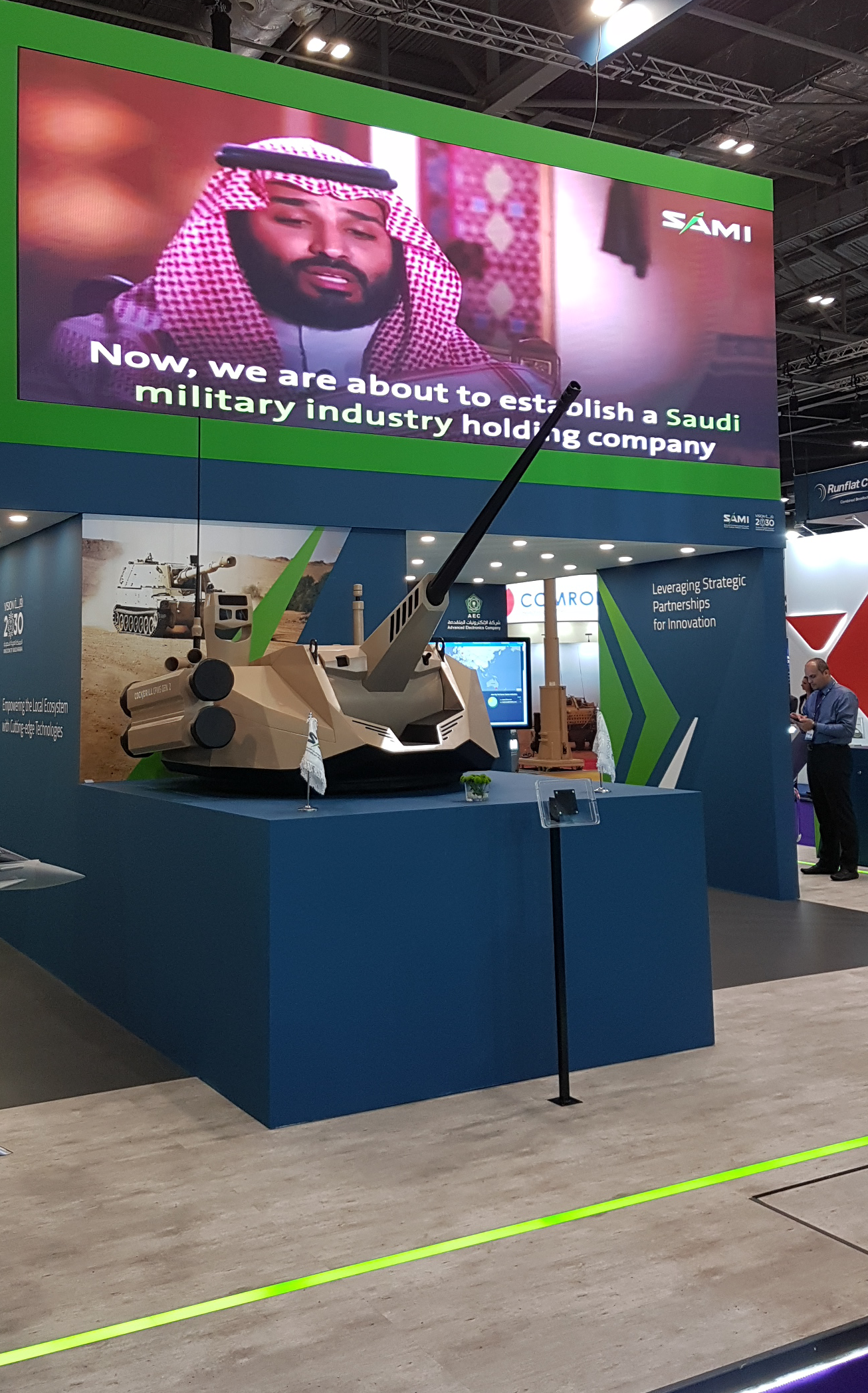
The last Labour manifesto called for an end to arms sales to Saudi Arabia. With an election looming, how could an embargo effect an event such as DSEI?
“If we cogitate,” Roddy responded, “if the government were to change its rules, we would abide by those rules.”
“One thing DSEI is, is complaint with UK and international law,” he assured me.
“We are looked at very closely by the Department for International Trade and HMRC to make sure we are compliant.
“There’s no-one invited here who is banned by government and there’s nothing shown here in a catalogue that’s banned by the arms control act.”
Back in 2013, DSEI was criticised when a pair of French and Chinese firms were found to be promoting stun guns/stun batons and leg restraints at the fair, which lawyers said were prohibited.
Roddy insisted things had come a long way since then, although he did not tell me exactly how many DSEI staff are assigned to vetting.
“If a manufacturer is found to have advertising material on that kind of equipment, restraint kit or arrest kit that is banned by convention, they will be kicked out. That’s what happened then.
“We are pretty sure because this hasn’t happened for a number of years. We would have it banned or removed. Over the years we have learnt some lessons.”
Just before the arms fair opened, London mayor Sadiq Khan wrote to DSEI saying he opposed the event and would take any opportunity to stop it from happening in the Docklands again.
“I’m not sure we were surprised — rumour had it he was going to say something like that,” Roddy demurred, before pivoting back to his talking points.
“The local economy benefits from DSEI being here. We are a legitimate sector, a big contributor to the UK economy and global interaction. We feel it’s fair enough that we are here. We respect the mayor’s views.”
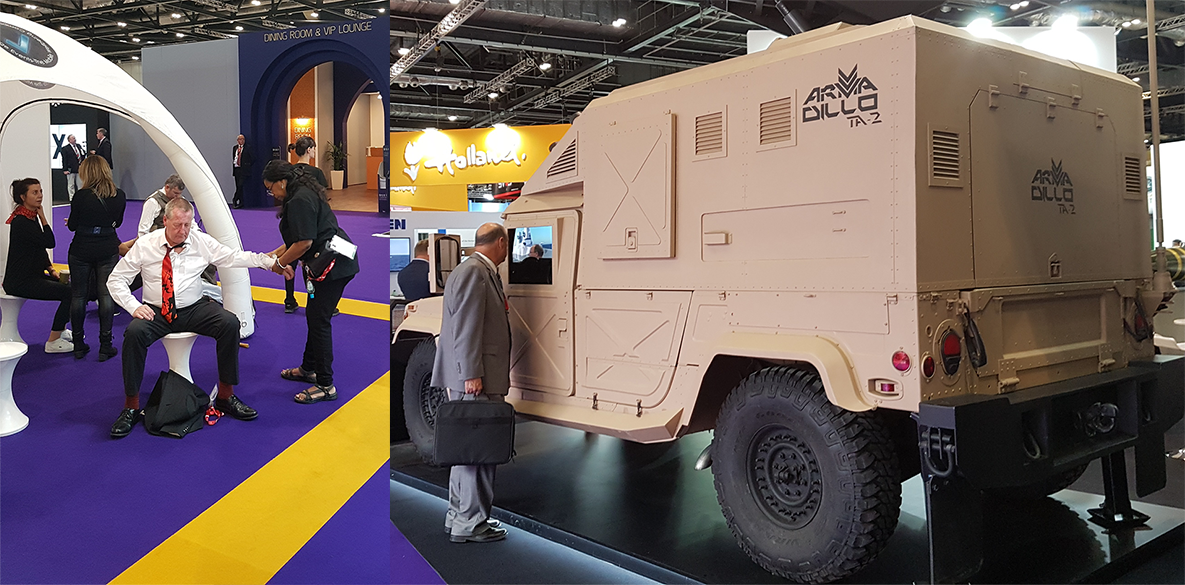
Turning to the rolling street demonstrations, Roddy said: “We respect legitimate and lawful protest. We identify to the Met Police two locations in reasonably close proximity to the boundary of ExCel where protests can take place.
“Last time we facilitated a candle-lit vigil. Some people don’t agree with us, if they want to protest then that’s their right to do so and we don’t have a problem with them doing that.”
I asked him then how it was possible for companies such as Turkey and Saudi Arabia to have a major presence at this event, when we know they are violating human rights.
“You can’t buy a handgun here and walk out,” Roddy responded.
“You can’t buy a pistol or an intercontinental ballistic missile. If you were keen to buy a product here you would go through a contractual process and a contract might be signed here. When that happens it’s subject to the government’s own export regulations and the trade department might stop that contract.
“Assuming that contract is within the law then that deal might go ahead, and you’re right, it’s up to that country what they do with it, and there is a risk that that company may use it in a way we might not agree with, like there’s a risk of insurrection, but every effort is made to ensure that equipment is used by people we trust.”
But did he really trust Saudi Arabia?
“They are trusted by our government,” Roddy responded as I frowned. “I’m not trying to dodge your question. The government has a trading relationship with Saudi Arabia, Saudi Arabia is here at this exhibition.
“The whole Yemen situation is a disaster and a very complicated problem. But I go back to speaking for the show, and we can only play within the rules that the government set us.”
Personal shopper
With the interview over, Roddy began to walk me around the show. He was proud to display the Tempest, a giant new fighter jet project that will employ 35,000 people, with British firm BAE Systems as a major player.
A model of the stealthy-looking black plane was on display at one stand, and appeared to be the size of tennis court, as visitors queued up to sit in the cock-pit and experience the 3D display console.
We wandered past another stand, where a British firm was exhibiting a tear gas launcher.
“What happens if the Bahrain Defence Force want to buy one of those while they are here?” I asked.
“That would be subject to an export control decision,” Roddy responded. “If it was blocked by the trade department, then that deal wouldn’t take place. And there’d be a very heavy penalty on them for trying to beat the system. It’s not up to the industry to decide, and I think that’s the right way round.”
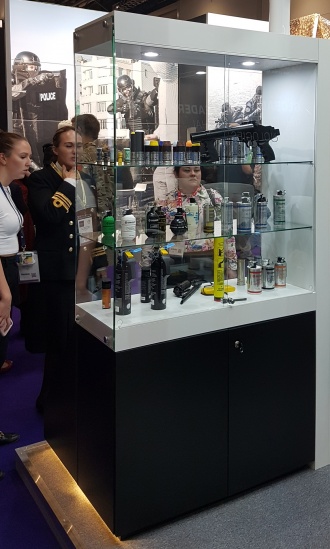
Roddy was more comfortable taking about the “spin-off” benefits of the arms industry, rather than my awkward questions about tear gas.
He pointed out mine clearance kits and hazard suits, that could now be used by civilians. An enthusiastic Welshman, who worked in the Labour-led Welsh government’s Department for Economy, invited Roddy for a drink at his stand after my tour, eager to promote arms industry jobs in Wales.
As the tour drew to a close, Roddy showed me the QinetiQ stand, a company which used to be owned by the Ministry of Defence.
It had developed a sleek black carbon robotic boat for navies to practice deterring suicide bomber attacks. This tactic had been developed by the Tamil Tigers, and was now being looked at by Iran, Roddy said. “It’s quite a significant threat to an oil tanker.”
Meanwhile a QinetiQ salesman beamed at Roddy and shook his hand. “I used to command him,” Roddy explained, referring to their days together in the army.
The revolving door between the military and the arms industry was clearly at work here. There were also dozens of serving British troops in uniform strolling through the stands, and many of the speaking events featured British personnel.
The Defence Secretary, Procurement Minister and Veterans Minister had all given keynote speeches, and the Royal Navy had moored a frigate and several smaller warships in the dock outside.
As much as Roddy was keen to stress that arms export decisions are taken independently by Whitehall, the government was clearly very keen for the arms fair to go ahead.
Asymmetric warfare
Another aspect that struck me from walking around the show was the sheer size of the armoured vehicles and how high off the ground their chassis were.
“The optimisation of people carriers to survive a mine blast is a major issue,” Roddy explained.
“The hull has to deflect the blast, and companies are optimising the harness system on the seating so they are not suspended from the floor where every bone in your body is smashed. That gets spun out into the wider car industry, which benefits from some of this safety stuff as well.”
Despite the spin-off value, it seemed as though the arms companies were primarily concerned about asymmetric warfare, after the surge in improvised explosive devices (IEDs) maimed scores of Western troops in places like Iraq and Afghanistan.
“The Snatch Land Rover was all we had at the time,” Roddy said, referring to the lightly armoured jeep that soldiers nicknamed ‘mobile coffins.’
“It was optimised for the Northern Ireland threat, but not for those renegades in Iraq where it was completely ineffective.”
After more than an hour with Roddy, I was keen to break away and look around myself, so we parted company.
My curiosity took me to an arms dealer from Kazakhstan, who told me how her array of smoke grenades and shotgun cartridges was available to customers around the world.
Next I headed to the sizeable Turkey section of the exhibition area, where major Turkish manufacturers such as Otokar and Nurol Makina were displaying their hardware — much of it armoured vehicles, presumably to deal with the Kurdish uprising.
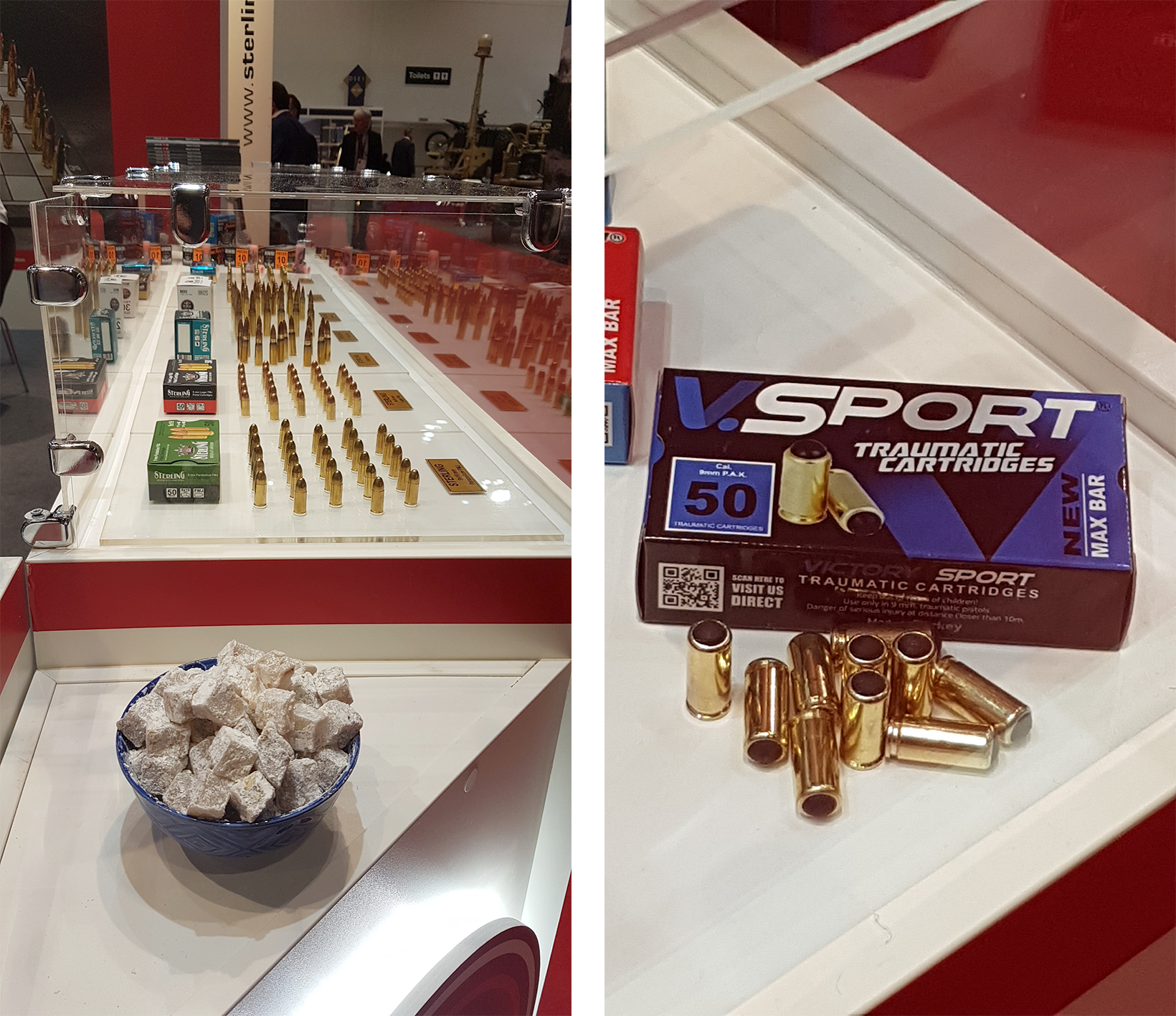
I was taken in by a Turkish bullet company, Turac, which kindly had a bowl of complimentary Turkish delight stationed amid its ammunition.
A box of “traumatic cartridges,” effectively rubber bullets, was perched at the end.
The Israeli arms industry also had a major presence at DSEI, with one of its key companies Elbit displaying a formidable range of rockets, drones, and armoured cars.
The arms fair started well for them, celebrating a £30 million contract with Britain’s Ministry of Defence.
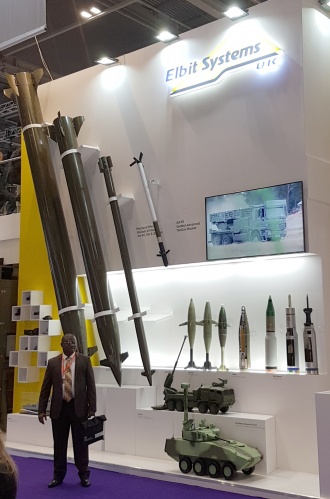
Although Turkey and Israel have consciously developed their own domestic arms industry, other countries, especially in the Gulf, are still heavily reliant on foreign imports.
Saudi Arabia had several large stands at DSEI, but with very little hardware on display. They seemed much more like networking platforms, where delegates could greet Saudis and discuss existing contracts.
When I sidled up to the Saudi Arabian Military Industries stand, the reception was less warm. Beneath a screen playing beaming videos of Crown Prince Mohammed bin Salman, the stand’s PR director repeatedly refused to answer my questions about the war in Yemen, or the prospect of a Corbyn-led British government.
“I’m sorry,” he smiled, “I cannot help you.”
Over at the sprawling BAE stand, my arrival caused the receptionist to scramble a “media handler” who could guide me to a company spokesperson.
In the end, though, they preferred that I spoke by phone to their head of media back at their head office in Farnborough.
She played down the threat of a Corbyn-led government to their business, insisting: “We maintain good relationships with political parties on both sides of the House.”
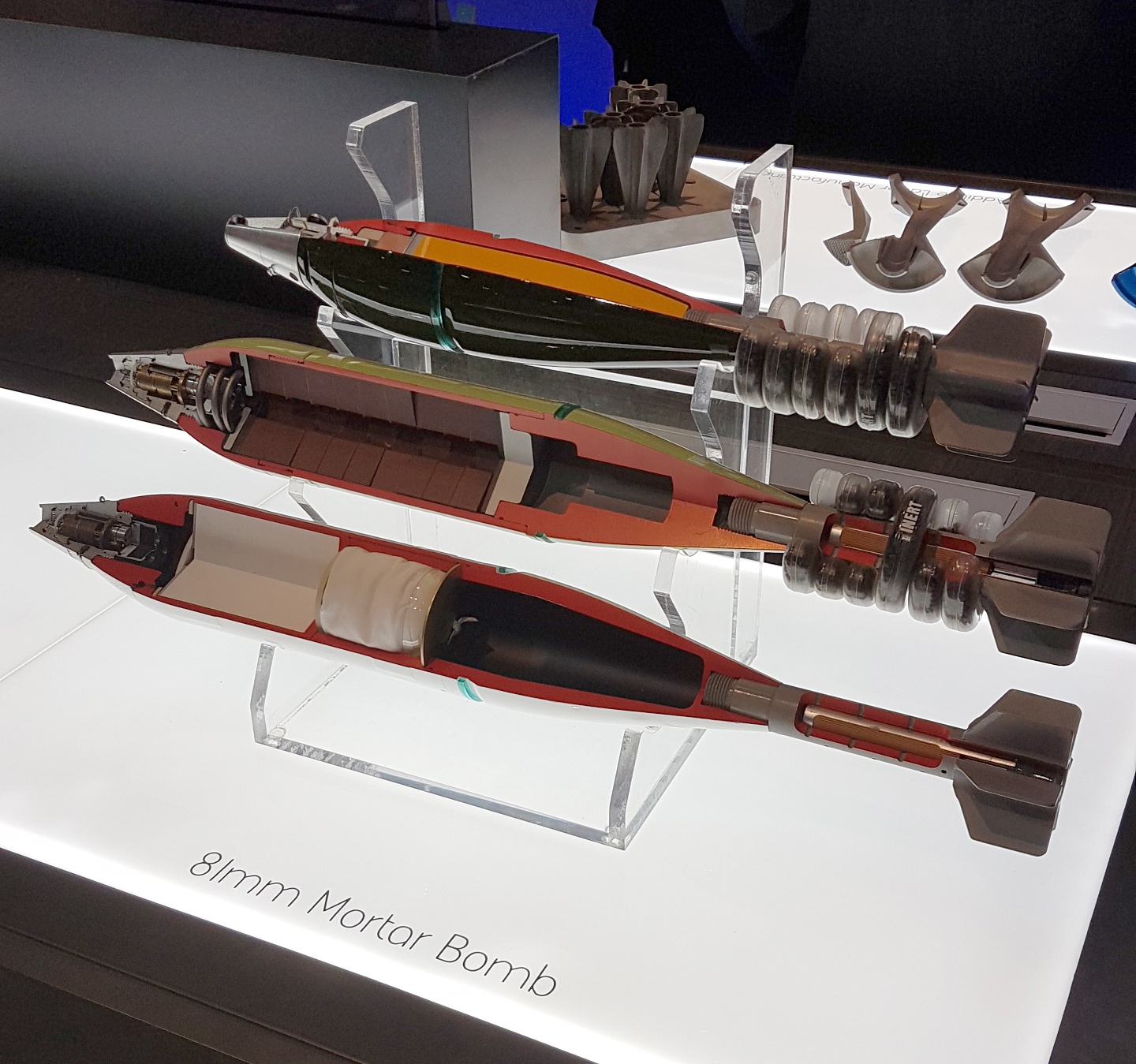
Although the company has been hit by a recent Court of Appeal judgment that forces Whitehall to revisit its granting of export licences to Saudi Arabia, BAE is trying not to sound too alarmed.
“We will assess the result of the UK government’s reconsideration of its decision-making on the basis set out by the court, once it has been made,” she said.
Much like Clarion, BAE deflected any criticism of the operations onto government policy: “We provide defence equipment, training and support under government to government agreements between the UK government and Saudi Arabia.”
For decades, this has been a convenient line of defence, with pliant prime ministers in Downing Street who would never jeopardise British arms exports.
But if Corbyn does manage to take power, then might the next DSEI event and its “platinum partner” BAE be in for a very rough ride?

 Phil Miller
Phil Miller










